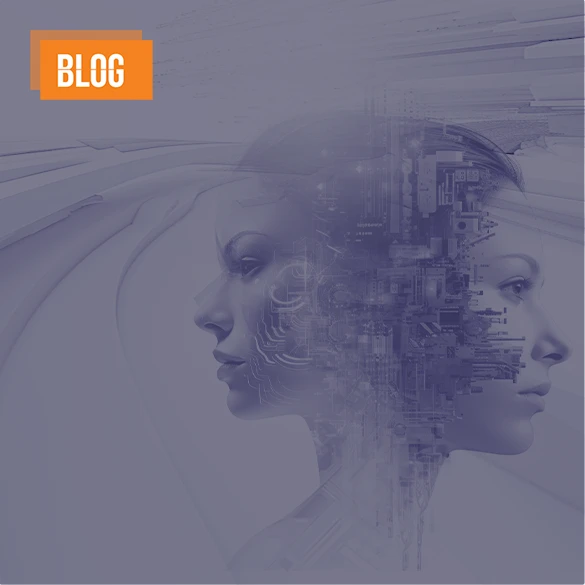Extreme personalization is here and driving huge business advantage. Are you ready for it?


AI is rapidly transforming the way companies sell to their customers. In this article we explore how this sales and marketing revolution is going to impact CSPs and what they can do today to deliver a smarter buying experience for their customers while improving profitability for themselves.
AI is revolutionizing the way companies sell to their customers. It has already obsoleted static, periodic marketing campaigns along with generic price plans, bundles and offers, and is delivering the type of real-time, relevant, hyper-personalized and novel buying experiences that customers increasingly expect.
Retailers are at the forefront of this revolution, and are enthusiastically embracing the powerful combination of Big Data, AI and smart marketing platforms that are enabling them to survive and thrive in the most demanding, ultra-competitive markets on the planet. Ignoring this tech isn’t an option for them, as success is increasingly tech-driven and they have little choice but to consume and adopt the latest tooling to assist them in the competitive arms race that is modern retailing.
But CSPs can’t afford to sit this one out and watch from the side lines, because smarter retailing is raising customer expectations across the board. A 2021 study by McKinsey found that 71% of consumers now expect companies to deliver personalized interactions, and 76% get frustrated when they don’t receive them. For brands that deliver though there’s a huge upside, according to a 2023 study by Bolt, which found that 75% of shoppers were willing to pay more for personalized experiences. In the Gen Z cohort, 57% were willing to pay 11-20% more for custom and curated online shopping journeys.
Embracing hyper-personalization transforms results
Hyper-personalization is a business tactic that leverages data and insights to curate real-time individualized experiences at scale. It is being applied across the customer journey, including in sales and marketing processes.
CSPs have a natural advantage in delivering hyper-personalized sales and marketing, because they possess huge amounts of historic and real-time data about their customers. This approach therefore builds on their previous investments in Big Data and Open APIs to deliver both business advantage and smarter experiences. Having done the hard work opening up their data silos, CSPs can now fully exploit the commercial potential of the vast quantities of data they possess to understand ever-changing needs, patterns and trends in customer behavior.
How AI is being used to deliver hyper-personalized sales and marketing
By improving the tailoring and targeting of sales and marketing, not only do CSPs improve the likelihood that customers will buy from them, but they also avoid frustrating them with irrelevant spam, as well as simultaneously optimizing their marketing spend by focusing resources on customers who are open to buying.
Importantly, AI delivers actionable insight and operational excellence throughout the sales and marketing cycle – including helping CSPs to address those all-important mid-lifecycle opportunities to upsell, cross-sell and adjust packages so they remain aligned to customer need. Examples of how AI can be used to improve sales and marketing performance include:
• maximizing the effectiveness of marketing spend – through highly-targeted advertising and laser-accurate product recommendations based on past purchases, billing data, browsing history, location data, social media insights, cross-channel activities and customer support insights (themselves gathered and documented by AI from across the support organization)
• delivering resonant and relevant communications – personalized marketing content can now be produced at scale based on customer insights and created on-the-fly at minimal cost using generative AI
• optimizing commercial performance – via customized product bundles, discounts and offers that are tailored to an individual customer’s needs and budget but are still profitable for the CSP
• crafting superior buying experiences – by enabling real-time guided selling insights that ensure staff quickly understand a prospect’s wants and needs and can match those with an optimal offer. In self-care this leads to a smart combination of self-bundling and tailored pricing
• increasing loyalty – by keeping bundles and packages fresh and aligned to evolving customer requirements through regular mid-lifecycle reviews, recommendations and promotions.
The bottom line
Successful sales and marketing is predicated on a CSP’s ability to engage and create meaningful conversations with customers. As CSPs become more customer-centric and data-driven, personalization will diffuse to every aspect of customer experience – including the buying experience. As such, hyper-personalized sales and marketing is no longer a nice-to-have but a vital tool that enables CSPs to remain competitive and profitable, while simultaneously being an essential component of the overall customer experience being curated.
Data, marketing automation platforms, and AI are all vital enablers of hyper-personalized buying experiences, which together allow CSPs to forge deeper relationships with their customers and excel in the increasingly competitive marketplaces in which they operate. As we enter the 5G era, CMOs simply cannot afford to ignore the ability they deliver to craft new experiences; or the resulting opportunity to maximize revenues, reduce marketing costs, and deliver impactful customer experiences that enhance both loyalty and engagement.








